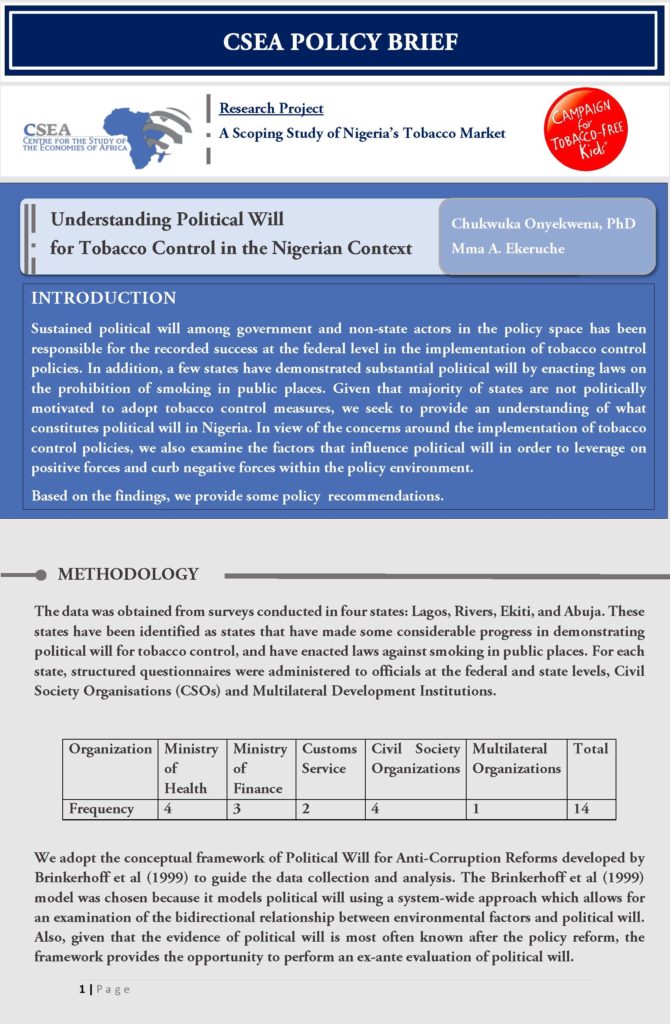Sustained political will among government and non-state actors in the policy space has been responsible for the recorded success at the federal level in the implementation of tobacco control policies. In addition, a few states have demonstrated substantial political will by enacting laws on the prohibition of smoking in public places. Given that majority of states are not politically motivated to adopt tobacco control measures, we seek to provide an understanding of what constitutes political will in Nigeria. In view of the concerns around the implementation of tobacco control policies, we also examine the factors that influence political will in order to leverage on positive forces and curb negative forces within the policy environment.
Policy Brief & Alerts

January 25, 2019
Understanding Political Will for Tobacco Control in the Nigerian Context
Sustained political will among government and non-state actors in the policy space has been responsible for the recorded success at the federal level in the implementation of tobacco control policies. In addition, a few states have demonstrated substantial political will by enacting laws on the prohibition of smoking in public places. Given that majority of […]
Read →
Related
Nigeria Economic Update (Issue 32)
The naira continued its
downward trajectory this week. Specifically, naira depreciated at the interbank
segment by 3.45 percent to N300/$; and by 3.56 percent to 378/$ at
the parallel segment. Despite the CBNs effort to support the naira
with Forwards and FOREX futures, the excess demand for dollar continues to put
pressure on the naira. Looking forward, the stabilization of exchange rate
depends on the ability of the CBN and government to attract capital inflows;
particularly by raising interest rate, tackling inflation and supporting
economy recovery.
Gross Domestic Product Growth Rate And Contribution To GDP (Transport Sector)
Gross Domestic Product Growth Rate: Growth in the sector which stalled in the second and third quarters of 2015 witnessed a considerable decline in 2015Q4; the stall in growth in 2015 is attributable


